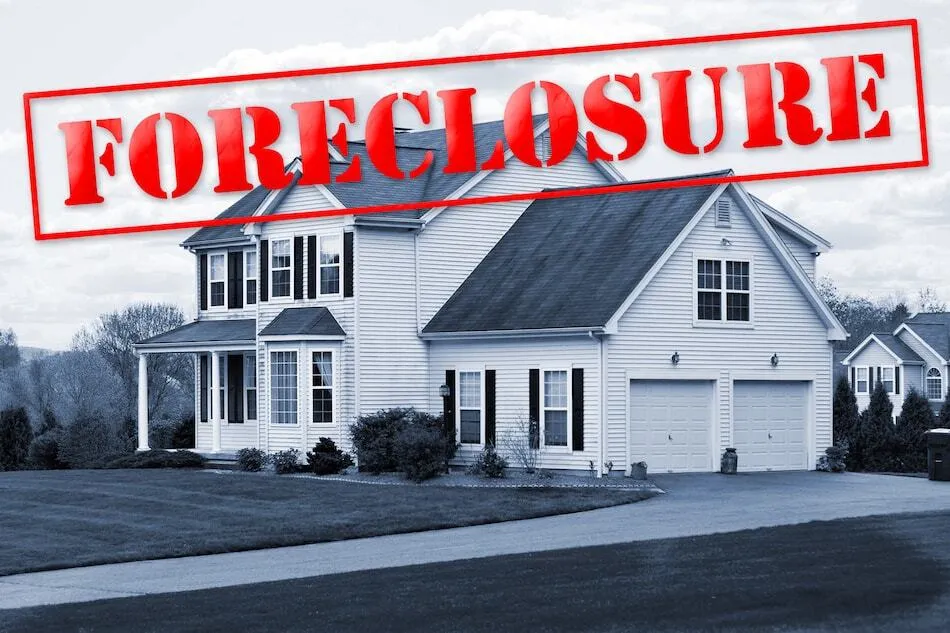Know more about the Tennessee Foreclosure Process
Foreclosure is a word that often brings angst and dread, but there are many things to do to proactively prevent it from happening, protect yourself while it takes place, or plan for what is next if it has happened to you.
Preforeclosure
Preforeclosure is the term used for the first step taken in the foreclosure process which is often a notice from the lender that they have started the legal process of foreclosure. It is to prepare the residents for what is ahead if they are unable to catch up on payments in time to stop the foreclosure. This is to show that the lender wants to give them time to get back on their feet, but have recognized a delay in payments.
There is usually a complete grace period between the lender and resident for ten to fifteen days past when the payment was due. After that, there is a late fee assessed that will be charged each month that you get behind on payments. This, along with inspection fees, are completely within the servicer’s rights to ask for if in the process of preforeclosure.
Foreclosure can be avoided if payments are made on time, but if a resident becomes consistently late or begins missing payments entirely, their servicer is within their rights to begin the process of foreclosure.
Rights Extended to those Facing Foreclosure
As in any legal matter, there are rights extended to every party, including those who are facing foreclosure. Many times before action is taken, they are given the right to the following:
- Opportunity to file for bankruptcy and gain profit from a foreclosure sale
- Catch up on the missing or late payments of the loan
- Apply for loss mitigation
- Receive a notice of your property’s foreclosure
These rights are extended to individuals in an attempt to delay or completely stop a foreclosure, or at the very least, notify the resident of the happening and allow them to prepare for such. This is one of the ways humaneness is attempted to be shown in a situation that is often perceived as merciless. There is an understanding from the lender that sometimes life is hard and everyone can get behind on a payment every now and again which is why there is almost always a four month mercy period where individuals are shown grace in hopes that they can get back on track with payments before action is taken.
How long is the foreclosure process in TN?
The foreclosure process in Tennessee does not usually begin until after one hundred twenty days late on payments, which is enough time for those individuals to file for a loss mitigation application. Once it begins though, the process is relatively straightforward and lasts as long as the mortgage lender (whether that be the bank or a separate entity) takes to complete the due processes. This could take any amount of time, as little as six months from the first missed payment. Normally, this process takes close to four months to complete once the bank is involved, whether that is before or after the first four months of missed payments.
Is TN a judicial foreclosure state?
A judicial foreclosure means that it must go through court for each step in the foreclosure process, and a nonjudicial foreclosure means that the lender is able to avoid the court entirely which means the foreclosure process moves much quicker. Tennessee is considered a nonjudicial foreclosure state, so they are not required to go through the court, and oftentimes the foreclosure moves much quicker than in other states.
What are the stages of foreclosure?
Foreclosure occurs because of a lack of timely payment to a mortgage lender which results in a demand for the missing payments or the property itself. This occurs in a series of steps beginning with the lack of payments. The process is as follows:
Notice of default
Depending on the servicer, the time can differ, but on average, there is a notice of default sent to the individual after four months of missed or delayed payments. Normally, they are allowed thirty days to pay what they have missed and not risk foreclosure, but that also depends on their servicer.
Notice of Sale
The notice of a Trustee’s Sale depends on the state and whether it is judicial or non-judicial. Because Tennessee is considered nonjudicial, that means that foreclosure takes place outside of a courtroom and can occur quickly without the bounds of a court appearance.
Foreclosure Sale
This sale occurs when the foreclosure is final and the property has been placed on public auction and the servicer has sold the property to the highest bidder.
Real Estate Owned
Banks and other mortgage lenders are able to buy the property, at which point it would be considered “Real Estate Owned” which means that the property is now owned by that entity and is no longer open for public auction.
Eviction and Relocation
When the auction is over and the owner of the property (whether that be the bank or the highest bidder of the property), anyone still in the residence is notified to evacuate immediately. Sometimes the new owner will offer their help with relocation, though it is in no way required.
How long do you have to move out after a foreclosure in TN?
There is a federal act called the Protecting Tenants at Foreclosure Act which mandates at least a period of ninety days for residents to relocate before being kicked out after a foreclosure, even if the property is already sold and newly owned. Eviction is not allowed to be enforced until these ninety days have happened and the individual has been provided every opportunity to find a new place of residence.
In Conclusion
Overall, foreclosure still brings distress, but if we understand the rights each party has, the process at which it occurs, and what sort of mandates are enforced in the state of your residence, there is a better understanding of how to respond. Just knowing that Tennessee is a nonjudicial foreclosure state allows residents to prepare themselves for fast action if the foreclosure process starts since there is no court involvement. It is important to be informed because that is how preparation and reaction is best calculated.

